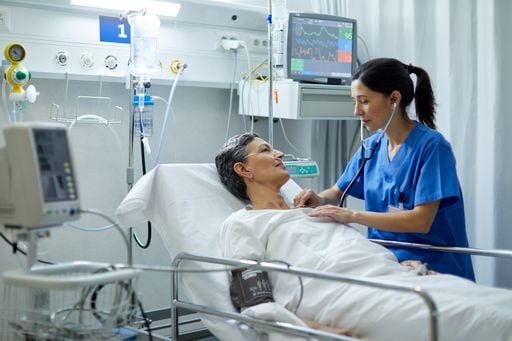
An Ode to the Differential Diagnosis
by Mercy M. Hylton, MD
The differential diagnosis is a cornerstone of the profession of medicine which epitomizes physicians’ critical thinking skills. It is not an antiquated tradition of by-gone eras. The practice of medicine has been positively impacted in the past century by revolutionary scientific advancements, standardization of medical education and transformative societal changes. Some unfavorable changes in the practice of medicine have been provoked by its overlap with the business of healthcare. The differential diagnosis must not be relegated to the trash pile of history.
Learning how to develop differential diagnoses is a critical and unique feature of medical education. Medical students start as generalists and are thought to initially think through broad possibilities, which is why they often list rare conditions on their differentials. Although rare diagnoses are unlikely to be present based purely on epidemiology, the “zebras” must not be discounted. We cannot diagnose what we do not consider. We cannot consider what we do not remember or even know exists. This is one of the many reasons why precepting medical students is mutually beneficial to teacher and student. Ideally, the evolving physician feels renewed by working with medical trainees, occasionally humbled by patients, and is able to learn from both.
Undifferentiated patients are one reason the job of a generalist physician is very mentally challenging. Nonspecific symptoms can originate in different organ systems or can affect multiple systems simultaneously. Generalists such as internists, pediatricians, family practice physicians and emergency physicians need a broad fund of knowledge of acute and chronic conditions across a lifetime of human development. Perhaps, this need for a wide breadth of knowledge is one reason why so many medical trainees aspire to a specialty with a narrower, albeit more in depth, focus.
For any given circumstance physicians of any specialty may choose to apply a diagnostic approach which is probabilistic, prognostic, pragmatic, or a combination. A physician’s differential diagnoses may also depend on whether one is a generalist or specialist, the clinical setting, patient acuity, or unique population demographics. In Emergency Medicine, we often lack the opportunity to ponder extensive differential diagnoses before quickly acting to rule out life- or limb-threatening diagnoses. Surgeons build their differential diagnoses based on their knowledge of anatomy, pathology, and spatial reasoning skills. Similarly, radiologists must be prepared to offer broad differential diagnoses based on imaging and available clinical information. Pathologists may be able to provide the narrowest differential, or a definitive diagnosis, but, alas, it may require invasive testing or even the patient’s death.
The necessary training to learn the incredible depth of medical knowledge in a specialty is one reason why physicians cannot move from one specialty to another without some difficulty. Even when we think we know the best diagnosis, the humble physician of any specialty is also aware that other possibilities exist, some which have not yet been considered: this acknowledgement is what keeps physicians awake some nights.
The apex of physician intellectual expertise is the perfect application of the differential diagnosis. Unfortunately, since I graduated from medical school almost 20 years ago, I have witnessed the continual devaluation of the cognitive skills of medicine. I believe this progression started decades ago with third-party payers valuing procedural productivity over cognitive expertise. During the COVID-19 pandemic this imbalance culminated in the widespread financial frailty of health care systems resulting from the cancellation of surgeries, even though EDs, ICUs and hospital floors overflowed with sick medical patients.
The corporatization of medicine into the business of healthcare has endangered the value of physician acumen. The focus has turned to increasing cost-efficiency for the system and substitutes for the laborious, costly, and lengthy training of physicians. The thorough history, physical and thoughtfully narrowed differential diagnosis have been abdicated in favor of more diagnostic tests and specialist referrals. Over-reliance on algorithms, the advent of Artificial Intelligence and the utilization of non-physician practitioners as primary diagnosticians beyond the scope of their training are threats to the humanistic art and diagnostic science of medicine.
What is cost-effective for the healthcare system, often leaves the patient disengaged from their physician and stuck in a revolving door of tests and specialists, with no answers for their problems, extra bills, and lost time. Office visits are shorter and dominated by complying with electronic health records, and the expertly created and methodically narrowed differential diagnosis is fast being kicked to the curb.
The lack of opportunity to use our hard-earned cognitive expertise to help patients leads to resentment, burnout, and moral injury. Physicians may feel that substitutes for medical expertise infringe upon the intellectual property of those who made the personal and financial sacrifices to earn the title of physician. Physician burnout refers to distress symptoms due to excessive workplace demands. Moral injury is suffered when a physician is constrained to put the patient’s needs ahead of the needs of the system.
With experience comes the ability to quickly (often unconsciously) narrow one’s differential diagnosis. Physicians know the feeling of walking into a patient room and within seconds or minutes knowing the diagnosis or the prognosis. We refer to this ability in various ways: intuition, déjà vu, or gut feeling. My personal favorite term is “Spidey sense.” Peter Parker acquired his Spidey sense by chance. Physicians should have no doubt as to the source of our seemingly intuitive diagnostic skills: extensive and unique medical education and clinical training, experience, continual learning, situational awareness, and self-reflection.
The differential diagnosis is the calling card of a physician. This time-honored cognitive exercise is unique and essential to our profession. We can thank the teachers and patients from whom we learned by not allowing our intellectual talents to go unused. May we honor our profession by continuing to teach medical students and resident physicians these valuable lessons. May no generation of physicians acquiesce to medical expertise being substituted or otherwise devalued, and thus become complicit in the demise of our profession. Not on our watch!



